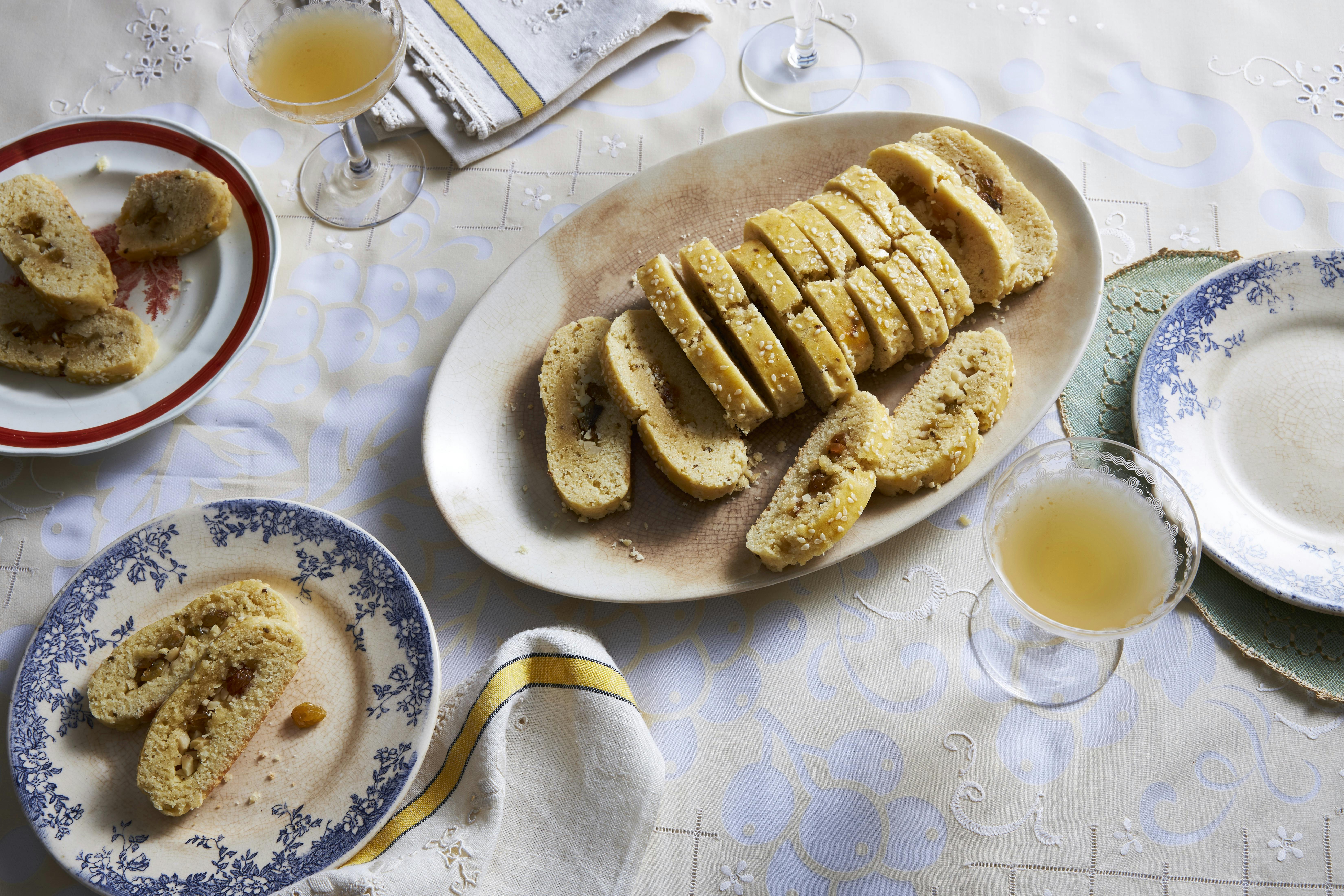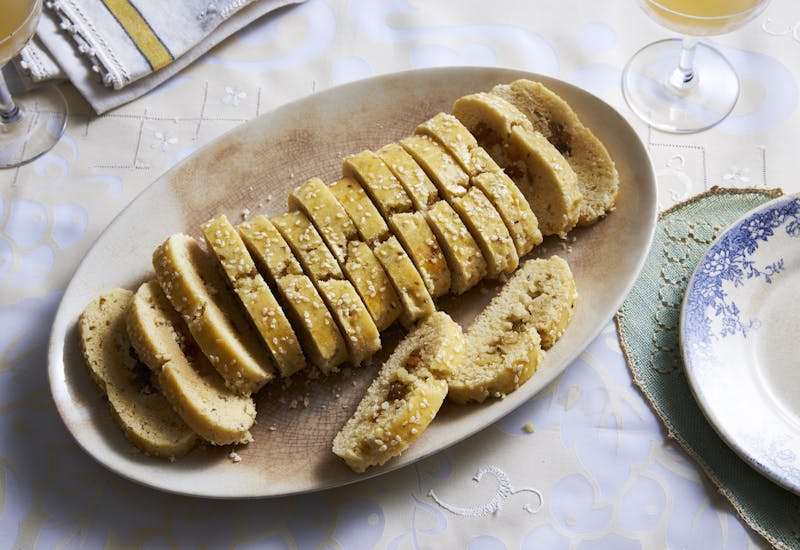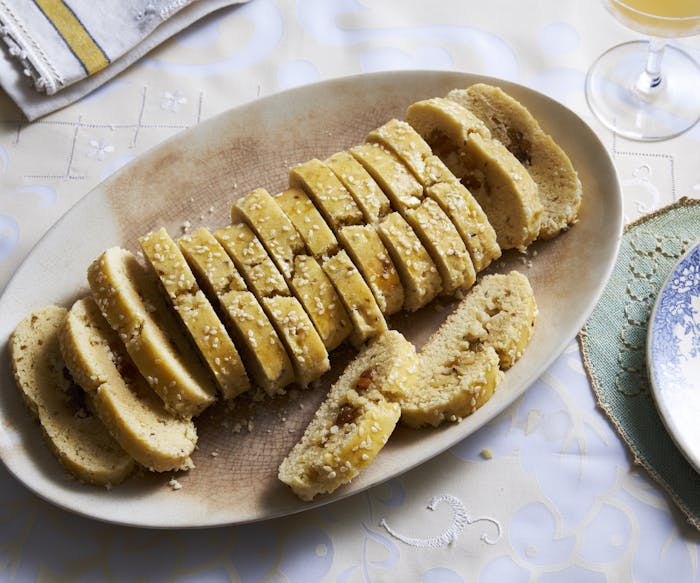Shared by Audrey Garcia
For This French Filmmaker, There’s No Yom Kippur Without Boulou
For This French Filmmaker, There’s No Yom Kippur Without Boulou
Family Journey
When she was little, actress and director Audrey Garcia’s favorite part of Yom Kippur was during ne’ila, the service that concludes the holiday’s prayers. She would sneak into the area where the men prayed and join her uncle under his tallit, or prayer shawl. “I really loved this moment — it was very moving,” she says.
After services, her family would gather at her grandparents’ home in Vincennes, just outside Paris, to break the fast together. The first bite was always a slice of her grandmother’s boulou dipped into water cut with orgeat, an almond syrup. “There’s no Yom Kippur without boulou — that’s for sure,” she explains. Flavored with orange blossom water, the cookie (sometimes referred to as a bread or cake), is traditionally enjoyed by Tunisian and Libyan Jews, but is little known outside of those communities.
In Audrey’s family, the recipe comes from her grandmother Daisy, who moved to France in 1956 with her husband Joseph from La Goulette, an area next to the port of Tunis. Her grandfather opened Chez Jojo, one of the first Tunisian grocery stores in Paris where he made his own harissa and Daisy cooked out of a small kitchen in the back for weddings and bar mitzvahs in their community. “I used to spend my Saturdays in the grocery, surrounded by spices, customers from North Africa, Africa, Asia, France...and Arabic music,” Audrey shares.
After her grandmother passed away, all of the women in her family took on the responsibility of making boulou. And, while the base recipe is the same, everyone has their own finishes, some mixing in more chocolate, others nuts or raisins. There’s a bit of competition around who makes the best version.
For Audrey, she’s always felt making boulou was expected of her. “I grew up with the idea that to be a woman and most of all a mother, you must cook,” Audrey explains. In her first film, “Le Boulou,” she plays with her family’s gendered expectations. Despite not sharing their perspective, baking boulou and maintaining this part of her heritage is deeply important to her, Audrey says. “Baking is also [a way of] showing and giving love without saying a word.”


